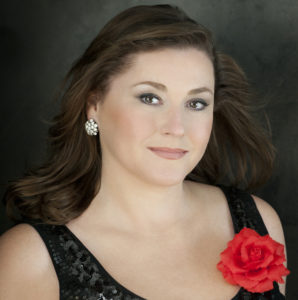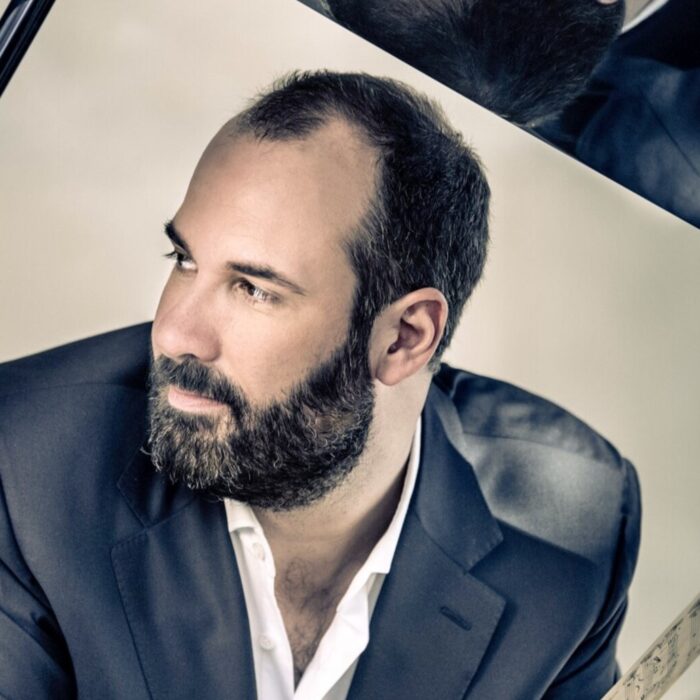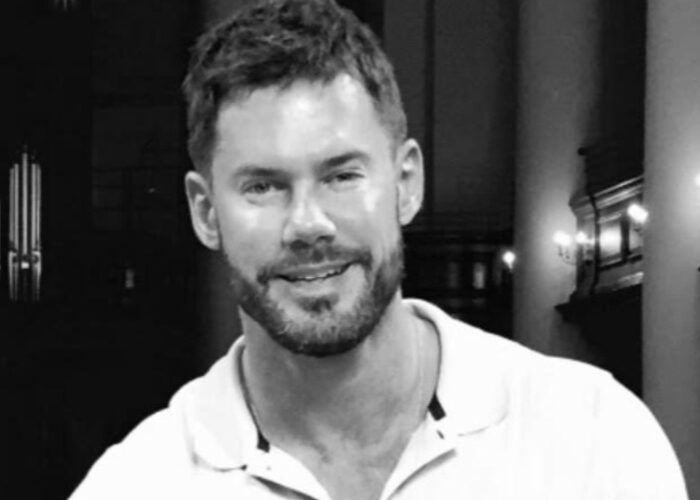
Q&A: Natasha Novitskaia On The Challenges Of Transitioning From Soprano to Mezzo
By Francisco SalazarRussian-born Natasha Novitskaia is a mezzo-soprano who has excelled in such roles such as Dalila, Santuzza, Amneris, Azucena, Lyubasha among others.
From an early age, Novitskaia received early training in singing and classical piano and obtained a Bachelor’s degree in Vocal Performance at the Marylhurst University and a Master’s degree in Russian Literature from St. Petersburg University.
Although she began her career as a lirico-spinto soprano, her voice moved into the mezzo repertoire about four years ago and since then she has performed Amneris, Fricka and Carmen with New York Opera Forum, and Santuzza with the New Jersey Association of Verismo Opera at the Players Club in New York.
In 2015 she sang the Principessa in “Suor Angelica” in the Tuscia Opera Festival in Cordona, Italy and also sang a gala concert in New York City.
She later went on to make her European solo recital debut singing Rimsky-Korsakov, Tchaikovsky, Rachmaninoff, and Sviridov with pianist Sergey Neller, and in 2016 she sang a solo recital at the Russian Embassy in Berlin, performing arias from “Samson et Dalila,” “Carmen,” and “Kashchie the Immortal” by Rachmaninoff among other works. She recently performed as a guest artist at the Giuseppe Giacomini Gala concert at Carnegie Hall.
Novitskaia is now gearing up to present a masterclass in Russian at the Accademia di Belle Arti di Firenze in conjunction with the Maggio Musicale Fiorentino. She will also make her Tokyo concert debut in an all-Russian program and will showcase her talents with the Russian Chamber Arts Society of Washington.
OperaWire had a chance to speak to the mezzo-soprano on her new trajectory and career path.
OperaWire: You used to sing as a soprano. Tell me how you discovered you were a mezzo?
Natasha Novitskaia: Yes, I lost several years of my career because I had the wrong teacher. She didn’t damage my voice but she didn’t open it and I was singing things like Butterfly or Leonora. I sang from the beginning as a soprano. I always sang the high tessitura and it was killing me and it was never going anywhere. The highs were horrible for me. But, the middle was okay.
OW: How did you become a student of legendary tenor Giuseppe Giacomini?
NN: A few years ago I was living in Berlin for three years and I did several auditions and did several concerts at the Russian embassy and a concert in Berlin. But I wanted to come back to the states. I was homesick. I lived in America for 15 years and I love this country. I am American. [Manager Matthew Laifer] took me in in June after a month of working and he told me to go to the Maggio Musicale to work with some coaches. And I said, “Of course, I need to get rid of my Russian accent.” And he brought me to [Giuseppe] Giacomini. He was visiting Giacomini and he asked me if I wanted to visit him. I said, “Of course.”
OW: What has been the process of working with him?
NN: Giacomini had a stroke several years ago and he couldn’t talk and he didn’t work with any singer. Matthew brought me to him, we had a nice dinner and he wanted to work with me. I was the first person he worked with after the stroke. It was not easy because his speech didn’t come back immediately. He felt dead and after an hour he took my hand and he thanked me for being there. After that lesson, I did an audition in Rome and Matthew told me, “You’re singing much better.”
OW: I know you helped set up the Giacomini Gala. Can you tell me about the process and how it came about?
NN: It was a very uplifting atmosphere. People were very excited and everyone opened themselves. After having studied with him he told me the story of his stroke and right there I said, we need to do something for him because Matthew mentioned that he wanted to come back to New York. And I thought why don’t we do a concert for him. It started like that from scratch. He tried to get money and artists. It’s amazing how it happened because several times we thought it was not going to happen because we didn’t have enough money or support. It was really difficult. It was really amazing how many people helped with this.
OW: How did Maestro Giacomini feel about the gala?
NN: When Giacomini arrived he didn’t want to go anywhere. He was depressed. We took him to “Aida” and Peter Gelb gave us the tickets for him. That was very nice. During the performance, Giacomini just sang the whole opera listening to everything and conducting. After that, we took him backstage and people were so happy to see him. He was coming back to life. And the next day we went to a restaurant and they played a couple of arias and the public went crazy. And it’s sort of like he was experiencing the life he was used to. And at the gala, he was so happy. I told Matthew to talk to his people to do a concert in Italy.
OW: What does Giacomini mean to you?
NN: He wants to work with singers and it is sad that he was cut off from his life. He said in Carnegie that singing is his life. It’s our life. If we don’t have it, we don’t have anything. He is a very nice person.
OW: You performed the Amneris-Radamès duet from “Aida” at the gala. What was that like?
NN: Well, first of all, this is my part. Verdi is my composer. I did this part with a small company when I was transferring from soprano to mezzo. I did the whole role reading the music. But the thing is it takes time when you transfer to a different voice. Also, I changed my vocal technique. I was singing with my head voice but I started to connect with my chest voice. It’s the only way to sing Verdi. It’s the role that I want to sing and it fits me like a glove. And I had a really exciting experience.
OW: What do you like about Amneris’ character?
NN: Unfortunately she does not have an aria. But you have these amazing duets. I just did a concert with Opera America singing a lot of Verdi and I sang the judgment scene and the Amneris-Aida duet.
OW: Who are some of your idols?
NN: I always listen to [Fiorenza] Cossotto and [Giulietta] Simionato. They are just musts. The last time I listened to Cossotto was before the gala. The more you hear what she does, I realize I do the same and that is good.
OW: Who are you studying with?
NN: Jonathan Kelly, who is a coach at the Metropolitan Opera. He helped me get to the right spot with this role. I also have an Italian coach as well. But I think it should be a team of people who bring you to life. If you’re locked out, you’re not going to make it. You can have a great voice but you need to have the right people to work with you.
OW: What have you learned from those coaches?
NN: I was working too much with my chest voice and I was bringing it too much to the middle. Jonathan helped me not bring so much chest to the middle register. The main problem was the chest voice in the middle section. As soon as I did it the voice sounded rounder and more beautiful. It was not the head voice. It was now connected to the body. This is the main thing that they taught me. When I was learning Fricka and Erda, a lot of German coaches focus on text and it’s just too much. I found my high notes doing with “Eh” instead of “Ah” which is what Cossotto does. I cannot do “Ah” because it kills my notes.
OW: What do you think is important for a great mezzo voice?
NN: If mezzo doesn’t have a middle, mezzo is never going to sing. Every Verdi role is usually in the middle. You’re usually coming up and down. But you’re always in the middle. In roles like Azucena and Amneris, it’s always the middle. In roles like Ulrica, it’s a different animal. I worked with Grace Bumbry in Salzburg in a private lesson. She told me, “I never could really sing Ulrica. I don’t have this low.” If you don’t have a middle, you will lose your high notes or it’s just going to be totally wrong. Without it, you’re never going anywhere. If you don’t have a good low you’ll still be fine. Singing Wagner is easier than singing Verdi because Wagner is written where you open the music and you just sing. But in Verdi, there is a lot of technique.
OW: Have you ever sung Bel canto roles?
NN: I think Bel Canto is everything. I do the “La Favorite” aria. It’s so easy. But when I was a dramatic soprano, I was too heavy for it. I did sing tons of Mozart when I started. I was dying when I tried Fiordiligi. I almost choked.
OW: Dramatic mezzos usually sing dramatic soprano roles, which you have tackled. Would you ever go back to some of those?
NN: I can still sing Amelia’s aria in “Un Ballo in Maschera” and Mamma Morta from “Andrea Chénier” but the highs kill me because I don’t have an easy high. I’m a mezzo and it was always like my second teacher tried to make me somebody else. So it’s really tricky. Also, dramatic voices open later in life and when I started to sing I was sounding more like a Spinto soprano than a dramatic mezzo. Like Marilyn Horne, who was a lyric soprano and changed to mezzo. If I would have come to New York and had the right teacher, it would have been a different story. It’s all about the right teacher.


